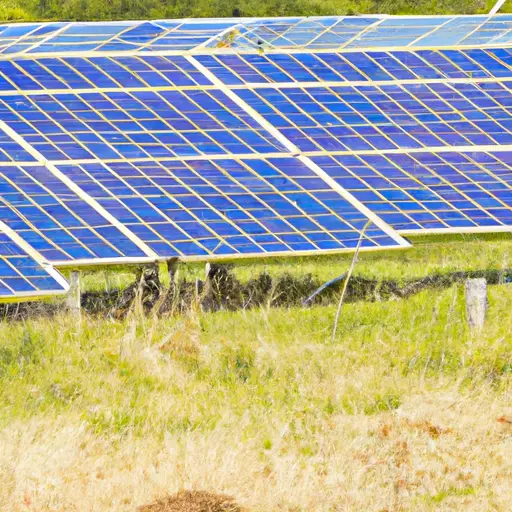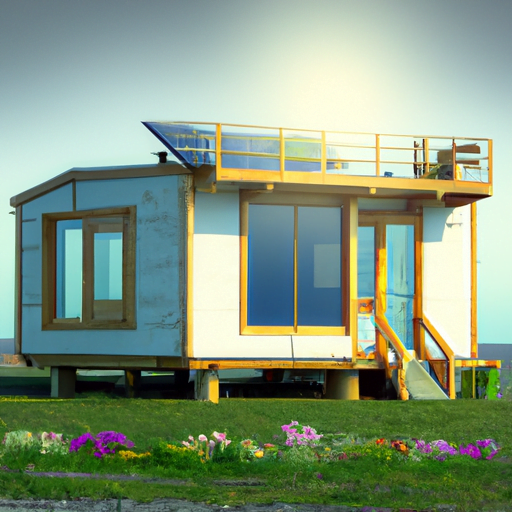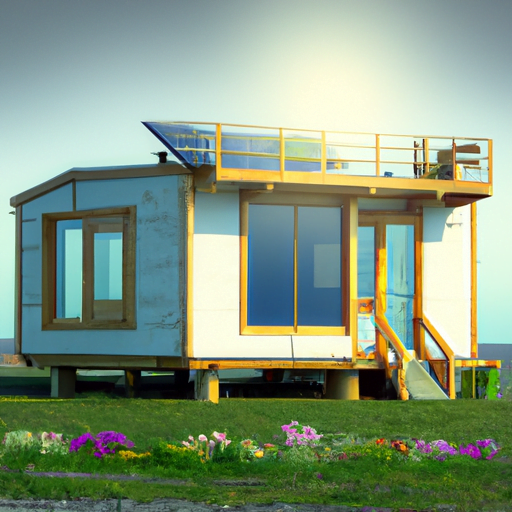Have you ever wondered what it would be like to live off-grid? You know, no connection to the power grid, relying solely on renewable energy sources and finding creative ways to sustain your daily needs. It sounds pretty exciting, right? But let me tell you, it’s not all rainbows and unicorns. Living off grid comes with its own set of challenges that you need to be prepared for.
One of the main hurdles you might face when living off grid is the lack of access to basic utilities. No more readily available electricity or water from the tap. You’ll need to generate your own power through solar panels or wind turbines and collect and filter rainwater for your daily needs. It requires careful planning and investment in the right equipment to ensure a reliable and sustainable source of energy and water.
Another challenge you’ll encounter is the need for self-sufficiency. Being off-grid means you are solely responsible for meeting your daily needs. There won’t be a grocery store just around the corner, so you’ll have to grow your own food and figure out ways to preserve it for the long term. You’ll also need to learn some basic DIY skills to maintain your living space, repair equipment, and even build structures. It’s a whole new level of self-reliance that can be both rewarding and demanding.
Living off grid also means being more mindful of your consumption and waste. Without the luxury of unlimited resources, you’ll need to prioritize your usage and find ways to minimize waste. Whether it’s conserving energy, reusing and recycling materials, or composting organic waste, you’ll need to adopt a more sustainable lifestyle. It may require some adjustments and sacrifices, but it’s all part of the off-grid experience.
These are just some of the challenges you might face when living off grid. But don’t let them discourage you! In our upcoming article, we’ll delve deeper into the topic and provide you with more insights and tips on how to overcome these challenges and embrace the off-grid lifestyle. So stay tuned and get ready to venture into the world of off-grid living! Living off grid is a lifestyle choice that involves living independently from public utilities and services. It means being self-sufficient and relying on alternative sources for power, water, and other basic needs. While this lifestyle may seem idyllic and appealing to some, there are several challenges that come along with off grid living. In this article, we will explore the various challenges and disadvantages of living off grid.

Limited Access to Basic Amenities
One of the main challenges of living off grid is the limited access to basic amenities that most people take for granted. When you choose to live off grid, you are disconnecting yourself from the infrastructure that provides you with electricity, water, and other utilities. This means that you have to find alternative ways to meet your basic needs. You may need to install solar panels or wind turbines to generate electricity, which can be costly and require regular maintenance. Additionally, finding clean water sources and managing water consumption can be a constant concern.
Reliance on Alternative Energy Sources
Living off grid means relying on alternative energy sources, such as solar, wind, or hydroelectric power. While these alternative sources may be more environmentally friendly, they can also be less reliable and more expensive compared to traditional grid-connected power. Solar panels and wind turbines can be affected by weather conditions, and if they fail, you may be left without electricity. Moreover, the initial investment and maintenance costs of these systems can be high, making it challenging for some individuals to afford them.
Water Supply and Management
One of the biggest challenges of off grid living is ensuring a sustainable and safe water supply. Without access to public water systems, off grid residents must rely on wells, rainwater collection, or other sources to meet their water needs. This requires careful planning and management to ensure an adequate and clean water supply. Additionally, water conservation becomes essential, as the availability of water can fluctuate depending on rainfall or other environmental factors.

Managing Waste and Sanitation
Living off grid also presents challenges in managing waste and sanitation. Without access to public sewage systems, off grid residents must find alternative ways to handle their waste. This can include composting toilets, septic systems, or other waste management methods. Proper sanitation practices are crucial to maintain a healthy living environment and prevent the spread of diseases. However, implementing and maintaining these systems can be complex and require ongoing attention and maintenance.
Food Production and Self-Sustainability
Another significant challenge of living off grid is achieving self-sustainability in terms of food production. Off grid residents often rely on growing their own food through gardening, farming, or raising livestock. This requires knowledge, skills, and hard work to cultivate and maintain a productive and diverse food source. Factors such as climate, soil quality, pests, and diseases can all impact the success of food production. Additionally, preserving and storing food for long-term use can be a constant concern.
Healthcare and Emergency Services
Living off grid can present challenges when it comes to accessing healthcare and emergency services. In remote off grid locations, access to medical facilities and professionals may be limited. In case of emergencies or severe illnesses, it may take longer to receive medical attention or evacuate to a suitable healthcare facility. This lack of immediate access to healthcare services can be a significant concern, especially for individuals with existing health conditions or those who require regular medical care.
Social Isolation and Limited Community Support
Living off grid can also lead to social isolation and limited community support. Off grid communities are often small and scattered, making it challenging to establish strong social connections and find support systems. Being geographically isolated can also mean limited access to amenities, services, and social activities that are readily available in urban areas. This isolation can have an impact on mental well-being and may require intentional efforts to build social connections and support networks.
Maintenance and Repair of Infrastructure
Living off grid requires constant maintenance and repair of infrastructure, such as solar panels, generators, water systems, and buildings. Without access to professional repair services, off grid residents must rely on their own skills or the assistance of fellow community members. This can be time-consuming and demand a certain level of technical knowledge and proficiency. Additionally, the cost of replacement parts or professional assistance, if needed, can be higher due to the remote locations of off grid communities.
Sustaining Mental and Emotional Well-being
Off grid living can also present challenges in maintaining mental and emotional well-being. The isolation, self-reliance, and physical challenges of living off grid can sometimes be overwhelming and lead to feelings of loneliness, stress, or burnout. Building strong support networks, engaging in activities that promote well-being, and seeking professional help when needed are essential in sustaining mental and emotional health in an off grid lifestyle.
Financial and Economic Considerations
Living off grid often requires a significant initial investment in alternative energy systems, water infrastructure, and food production capabilities. While it may lead to long-term cost savings in terms of utility bills and food expenses, the upfront costs can be a barrier for some individuals. Additionally, off grid living may limit job opportunities and income potential, leading to financial constraints. Careful financial planning and budgeting are crucial to ensure a sustainable and comfortable off grid lifestyle.
In conclusion, living off grid offers a sense of self-sufficiency and a chance to live closer to nature. However, it also comes with its fair share of challenges. Limited access to basic amenities, reliance on alternative energy sources, water supply and management, waste and sanitation, food production and self-sustainability, healthcare and emergency services, social isolation, infrastructure maintenance, mental and emotional well-being, and financial considerations are all challenges that off grid residents must navigate. Understanding and planning for these challenges is crucial for those considering or currently living the off grid lifestyle. Ultimately, it is a personal choice that requires careful consideration and commitment to overcome these challenges and create a fulfilling off grid living experience.




